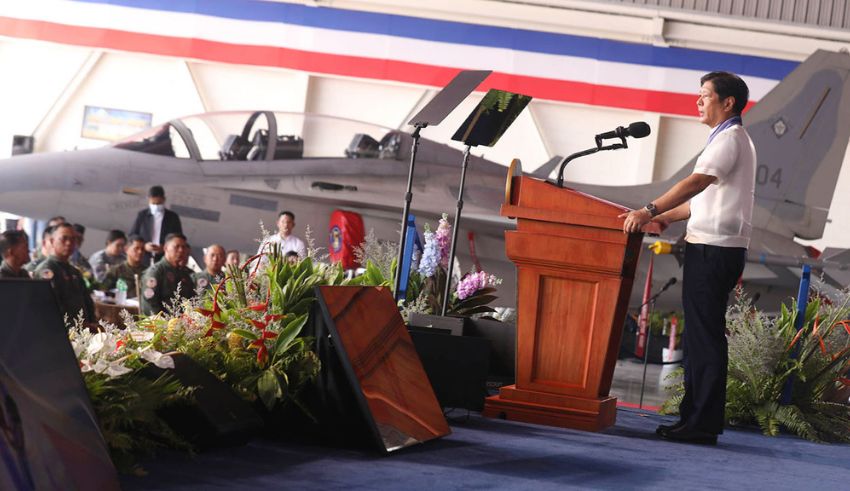
The recent call by Philippine President Ferdinand “Bongbong” Marcos Jr. for increased maritime patrols by the Philippine Air Force, as reported by BusinessWorld, highlights the importance of addressing geopolitical tensions and strengthening national security measures. The proposal reflects a proactive approach towards safeguarding the country’s territorial integrity, maritime resources, and strategic interests in an era of evolving geopolitical dynamics.
Geopolitical tensions in the region necessitate a heightened focus on maritime security and surveillance. The Philippines, as an archipelagic nation, faces unique challenges in protecting its vast maritime territories and exclusive economic zones. By increasing the presence and patrols of the Philippine Air Force, the country can enhance its capabilities to deter potential threats, monitor maritime activities, and respond effectively to any encroachments on its sovereignty.
The proposal by President Bongbong Marcos underscores the need for a comprehensive and coordinated approach to national defense and security. It highlights the importance of investing in modernizing defense capabilities, such as aerial surveillance and reconnaissance, to keep pace with evolving security challenges. Strengthening the Philippine Air Force’s maritime patrols would not only enhance deterrence but also contribute to maintaining regional stability and upholding international maritime law.
The call for increased maritime patrols aligns with the Philippines’ commitment to protecting its maritime resources and ensuring the safety and well-being of its citizens. It is imperative for the country to assert its sovereign rights and exercise responsible stewardship over its territorial waters, especially in the face of competing claims and geopolitical pressures.
Furthermore, enhancing maritime patrols is not only crucial for national security but also has broader implications for economic development and environmental preservation. Effective surveillance and monitoring can combat illegal fishing, promote sustainable resource management, and safeguard marine ecosystems, which are vital for the Philippines’ long-term prosperity and ecological sustainability.
Keep Reading
It is important to recognize that addressing geopolitical tensions and safeguarding national security requires a balanced and comprehensive approach. While the proposal for increased maritime patrols is a significant step, it should be complemented by diplomatic efforts, regional cooperation, and adherence to international law. Collaborative initiatives with neighboring countries, such as information sharing, joint patrols, and capacity-building programs, can contribute to the overall stability and security of the region.
The Philippines, as a responsible member of the international community, should continue to engage in peaceful dialogue, strengthen partnerships, and promote multilateral cooperation to address regional challenges. By pursuing a proactive and cooperative approach, the Philippines can effectively navigate geopolitical tensions, protect its national interests, and contribute to regional peace and stability.
The call for increased maritime patrols by the Philippine Air Force, as advocated by President Bongbong Marcos, serves as a reminder of the importance of continuously evaluating and enhancing national security measures. By prioritizing the modernization of defense capabilities and strengthening maritime surveillance, the Philippines can proactively safeguard its territorial integrity and contribute to a secure and prosperous future for its citizens and the broader region.



























